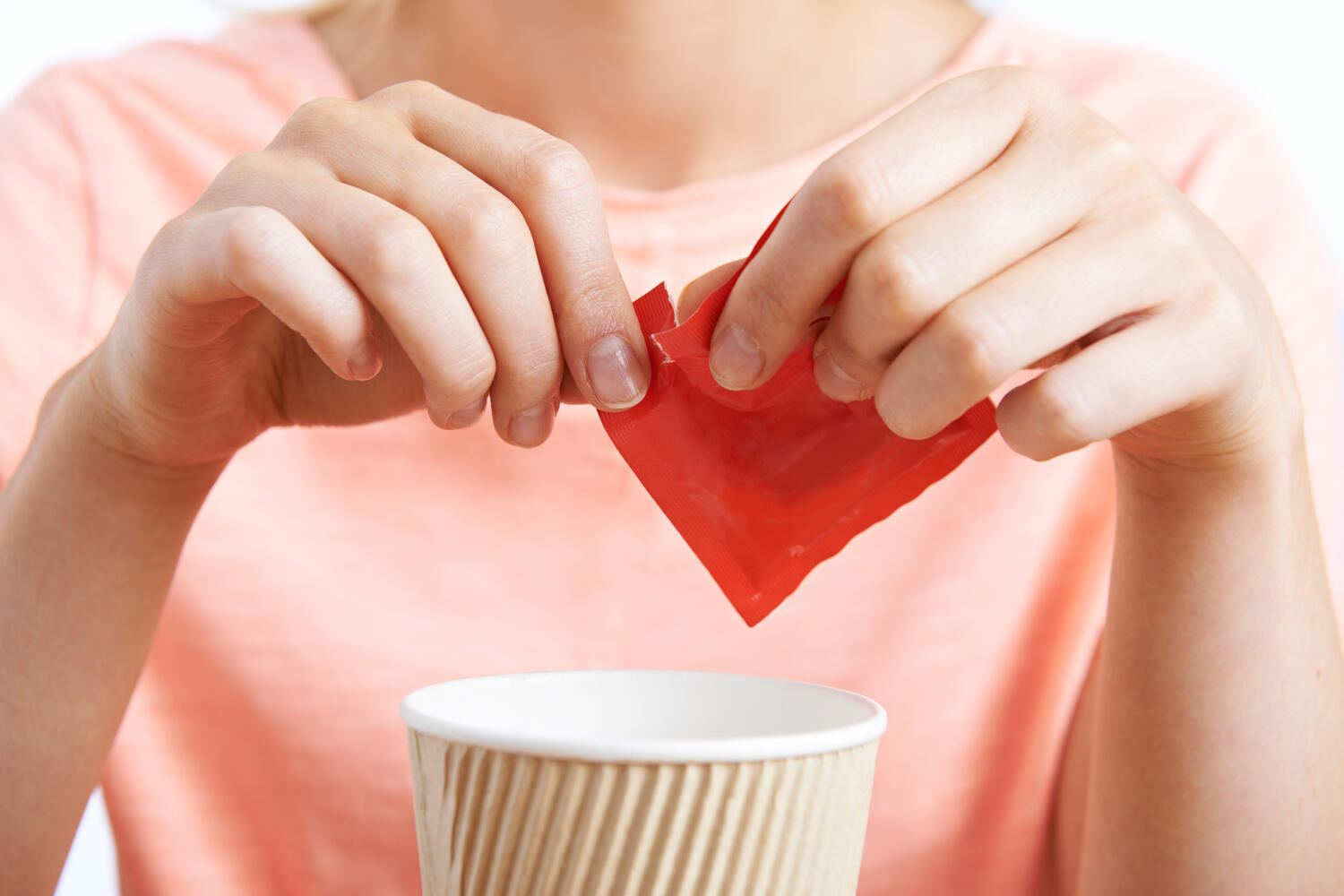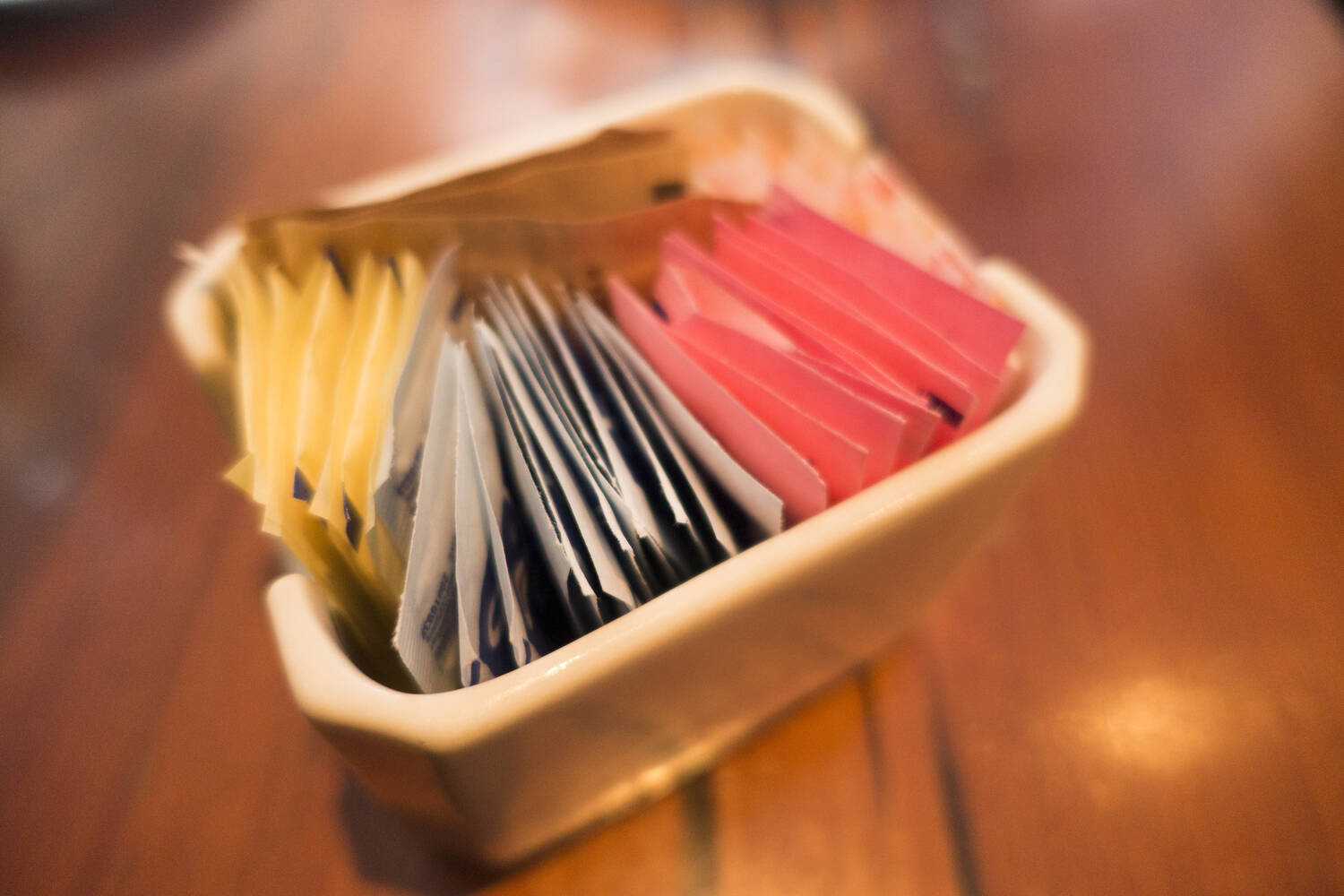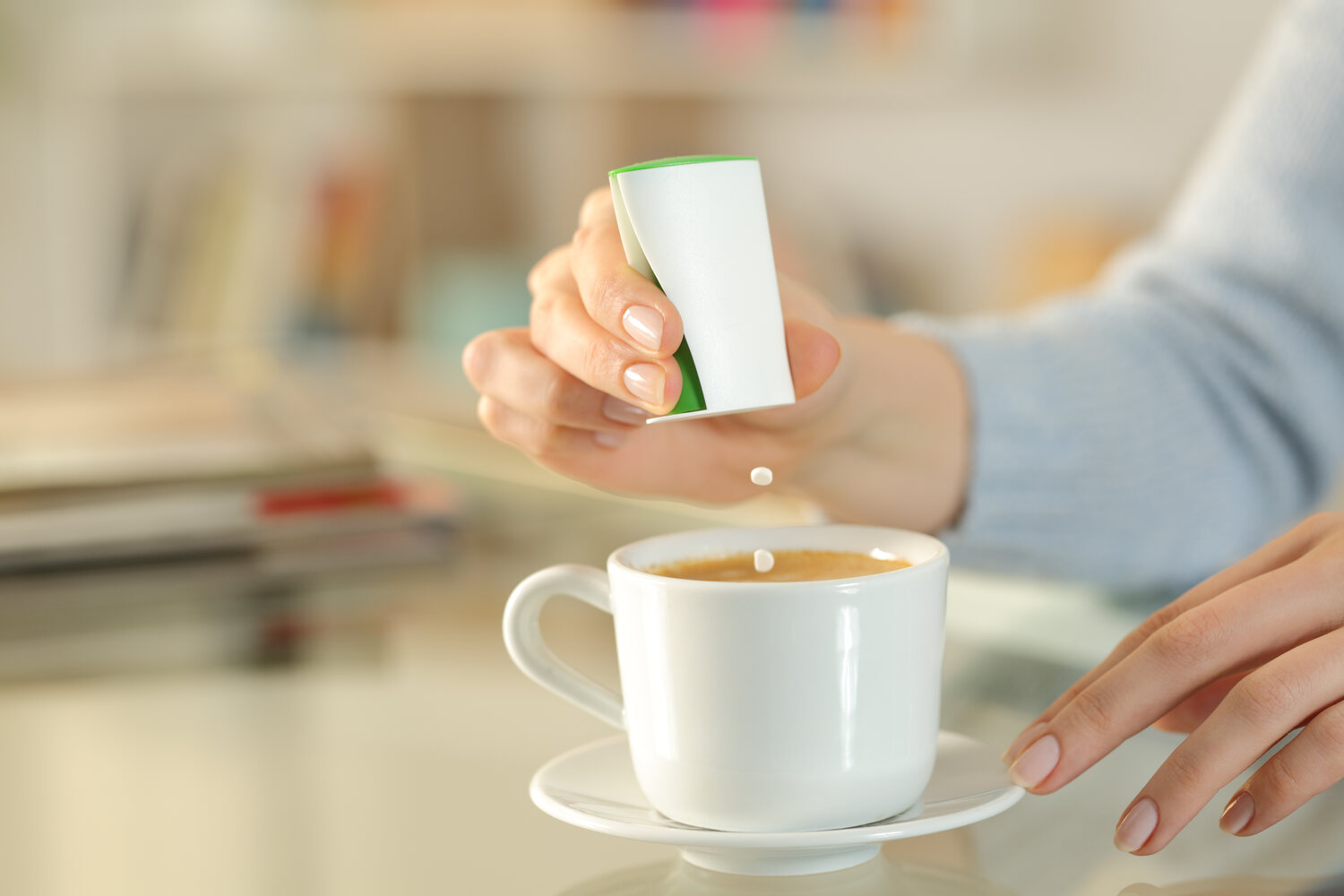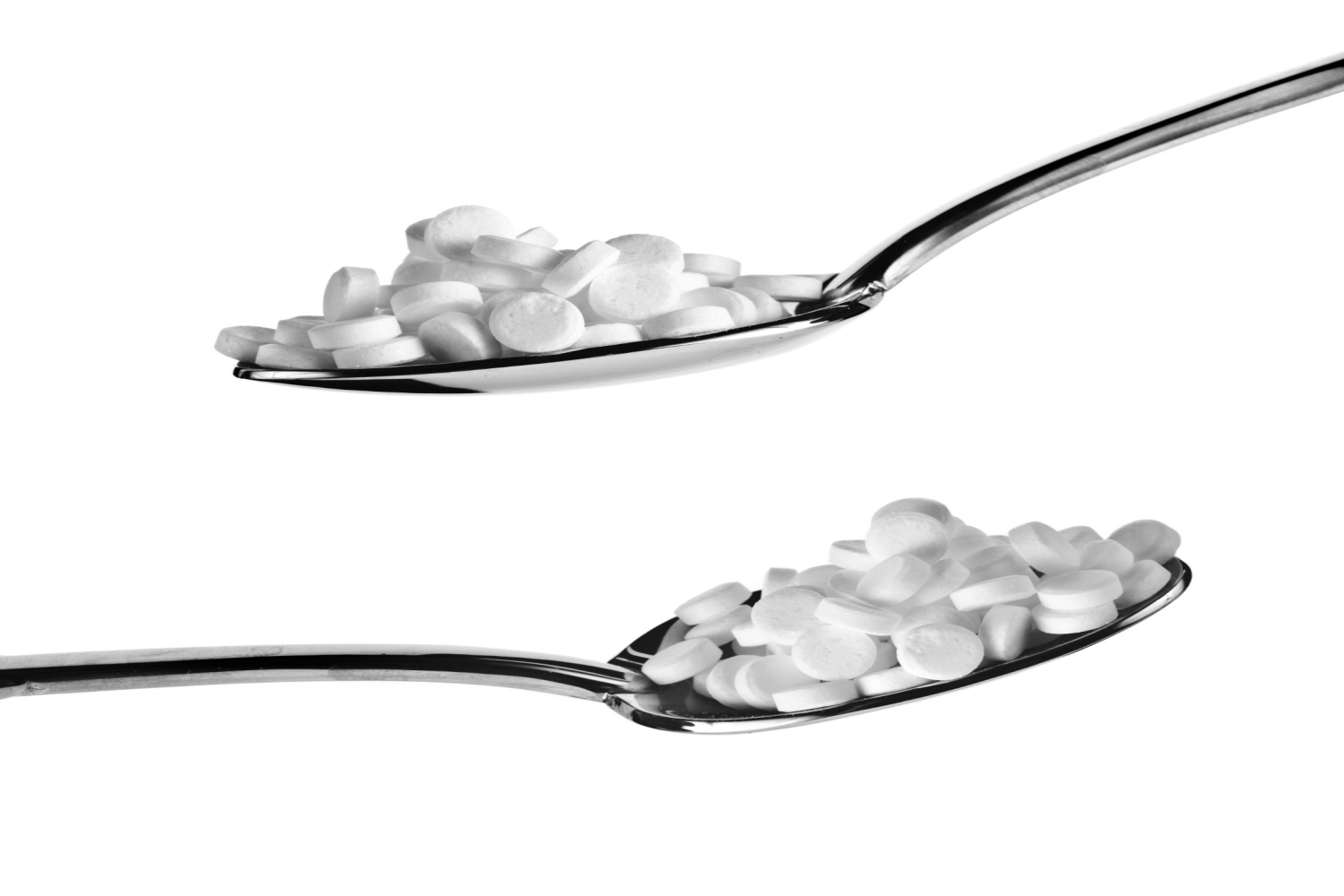
Are Artificial Sweeteners Safe to Consume During Pregnancy?
7 min readWritten by Sindhuja Prabhu


Diabetes during pregnancy or gestational diabetes, is a very common complication in pregnancy that every expecting mother wants to avoid. While cutting back on sugar and sweet foods is the best way to control blood glucose levels, is it feasible for everyone? Unfortunately, no. It is not that easy and many women try to replace their sugar with artificial sweeteners. Can you take artificial sweeteners during pregnancy?
When you are pregnant, the dynamics change a little. It is not just about your health now; it includes the baby’s too. Whatever you consume can reach the baby and affect the baby too. You need to be careful and sure about the impact before you consume something. Come, let’s dig deeper and find out if you can take artificial sweeteners during pregnancy.
In This Article
- What Are Artificial Sweeteners?
- Is It Safe to Use Artificial Sweeteners During Pregnancy?
- What Are the Different Types of Artificial Sweeteners?
- What is the Recommended Intake of Artificial Sweeteners When Pregnant?
- Artificial Sweeteners That Are Safe For Use During Pregnancy
- Artificial Sweeteners That Should Be Avoided During Pregnancy
- Benefits of Artificial Sweeteners During Pregnancy
- Side Effects of Artificial Sweeteners During Pregnancy?
- FAQ’s
What Are Artificial Sweeteners?
Artificial sweeteners are alternatives to sugar and other similar products that give you a sweet taste upon consumption. Artificial sweeteners provide sweetness without the calories and other side effects of regular sugar consumption. The body does not metabolize these artificial sweeteners, so the tongue gets the sweet taste but the body does not gain the calories. (1a)
Artificial sweeteners are very popular among those who are suffering from diabetes and those who avoid sugar for various health reasons. Also known as sugar substitutes, these artificial sweeteners are food additives that aim to provide the taste sugar would provide.
Some of these artificial sweeteners provide intense sweetness. So, you need only a small amount of these sweeteners to replace high amounts of sugar. So, if you add very little of this sweetener to your food item, it can provide the sweetness of a much higher quantity of sugar. (1b)
Is It Safe to Use Artificial Sweeteners During Pregnancy?

Now, the main question is: “Are these artificial sweeteners safe to consume when pregnant?”
According to a study on the “Association between artificially sweetened beverage consumption during pregnancy and infant BMI” (2), consumption of artificial sweeteners may not add weight to the pregnant woman but lead to fetal weight gain. The study shows that the babies born to women who consumed artificially sweetened beverages were bigger and heavier than babies born to women who consumed regularly sweetened beverages.
There is no clarity on how or why these artificial sweeteners lead to fetal weight gain but the correlation exists. These babies are bigger and heavier at birth. They grow up to be heavier individuals than others, thus leading to health issues at later stages of life.
Though the FDA approves some artificial sweeteners for pregnant women, the study and a few other sources, including Harvard Health (3) suggest pregnant women avoid such beverages when they want to cut back on sugar during pregnancy. Since these sweeteners add just taste to the food and have no considerable nutritional value, there is no benefit from consuming them.
What Are the Different Types of Artificial Sweeteners?

Today, the increase in consumption of artificial sweeteners for various reasons has led to the entry of multiple varieties of artificial sweeteners into the market. Some of the commonly available sugar substitutes in the general market are (4):
1. Rebaudioside A
Commonly known as Stevia in the market, is predominantly present in soft drinks and juices. According to the FDA, this sweetener is safe during pregnancy and has a GRAS rating.
2. Acesulfame Potassium
More commonly known as Sunett, is present in baked goods, puddings, frozen desserts, and sugar-free gelatins. According to the FDA, moderate use of Sunett is safe during pregnancy.
3. Aspartame
More commonly known as Equal / Nutra Sweet, is very popular in the general market among those who want to avoid sugar. According to the FDA moderate consumption of this sweetener is safe during both pregnancy and lactation. However, women suffering from diseases like PKU or liver disease, and those who have high levels of phenylalanine (a component of aspartame) in their blood.
4. Sucralose
More commonly known as Splendo in the market, is a non-caloric sweetener derived from sugar itself. You can find sucralose in non-alcoholic beverages, frozen dairy desserts, fruit juices, baked items, baking mixes, and even in sauces and toppings. According to the FDA, sucralose is safe during pregnancy as it does not contain any calories or have an effect on blood glucose.
5. Neotame
Neotame is a chemical derivative of Aspartame and is not widely used. It is much sweeter than Aspartame.
6. Saccharin
Saccharin can cross the placental barrier and reach the fetus but it does not pose any threat to the pregnancy or the baby. Until recently, Canada did not permit the use of this sweetener.
7. Thaumatin
Thaumatin is a plant-based sweet protein that the body processes just like other dietary proteins.
8. Polydextrose
It is synthetic, indigestible glucose that adds texture to food without adding sweetness. It is commonly used for commercial purposes and is a dietary fiber. It doesn’t pose any threat to consumption during pregnancy.
What is the Recommended Intake of Artificial Sweeteners When Pregnant?

When you are pregnant, it is advisable to limit your consumption of these artificial sweeteners. There is not enough study on the effects of regular intake of these sweeteners during pregnancy. The FDA recommends the general population not consume more than the given limit for each type of artificial sweetener.
So, a pregnant woman should consume much less than this quantity. Your doctor or dietician can help you identify the exact safety limit for your regular consumption of artificial sweeteners after assessing your current health condition and risks during pregnancy.
The safety levels of artificial sweeteners for the general population, as per FDA guidelines, are:
- Equal / Natura – 75 packets
- Sunnet – 23 packets
- Splendo – 23 packets
- Neotame – 23 packets
- Saccharin – 45 packets
- Truvia – 45 Packets
Artificial Sweeteners That Are Safe For Use During Pregnancy
The FDA certifies products as safe and unsafe for different categories of people depending on the effects the product can have on their health. The artificial sweeteners or non-nutritive sweeteners that are considered safe during pregnancy are (5):
- Stevia
- Sunett
- Equal
- Nutra Sweet
- Splenda
Artificial Sweeteners That Should be Avoided During Pregnancy

Some artificial sweeteners, though they don’t add calories or increase blood glucose levels, can have other side effects on pregnant women. Since there is not much research on this front, sufficient data on the side effects or long-term effects of using artificial sweeteners during pregnancy is not available. Artificial sweeteners the FDA recommends you avoid during pregnancy are:
- Saccharin
- Cyclamate
Benefits of Artificial Sweeteners During Pregnancy
Artificial sweeteners are gaining popularity as people discuss more about the disadvantages of regular sugar. Today, many people are switching from regular sugar to artificial sweeteners for the following benefits:
- It adds sweetness to the food items
- It does not add calories
- You need very little of these sweeteners in comparison to regular sugar for the sweetness you desire
- It can suppress hunger and appetite, thus helping you eat less
- It can help keep gestational diabetes and blood glucose levels under control.
Side Effects of Artificial Sweeteners During Pregnancy

Most of these artificial sweeteners are derived from various chemical compounds. Some of the common side effects of these artificial sweeteners are:
- Bloating
- Diarrhea
- Migraines or headaches
- Weight gain (you may eat more calories thinking you are cutting back by avoiding calories from sugar)
- Blurry vision (Consuming too much Aspartame might cause this)
- Can change gut bacteria
- Regular consumption can lead to glucose intolerance. (6)
Some studies show a correlation between regular consumption of one particular sweetener, aspartame, and cancer. Certain studies conclude that the sweetener is carcinogenic. These studies believe that aspartame can lead to weight gain in the future, which in turn increases the risk of certain cancers.
However, according to the FDA, there is no concrete proof for the correlation. Recent studies conclude that continuously consuming high amounts of aspartame can slightly increase the risk of different types of cancer. (7)
WHO advises against using artificial sweeteners to control weight gain. According to the WHO consuming artificial sweeteners does not control weight gain. Continuous usage can increase the risk of type 2 diabetes, cardiovascular issues, and even mortality in adults. (8) So, if you are consuming artificial sweeteners during pregnancy to control weight gain, it may not be a good idea.
Pregnancy is a crucial phase in any woman’s life. It is important to be proactive and careful about what you consume. While the FDA approves many artificial sweeteners for consumption during pregnancy, it is important to not overconsume. Just because these sweeteners do not add calories does not mean you can consume more calories in other forms.
FAQ’s
1. Is Sweetener Better Than Sugar In Pregnancy?
There is not enough research data on the long-term effects of consuming artificial sweeteners during pregnancy. In general, it is recommended for pregnant women to avoid or consume very minimal quantities of these artificial sweeteners to avoid affecting fetal health.
2. Do Artificial Sweeteners Cross The Placenta?
Yes, they cross the placenta and affect the baby’s health. Some studies show regular consumption of beverages with artificial sweeteners during pregnancy can lead to bigger or heavier-than-average babies, who can grow into overweight adults with health issues.
3. Can Artificial Sweeteners Help Control Pregnancy Weight Gain?
Though artificial sweeteners do not contain calories like sugar, they may lead to weight gain in the future. WHO advises against the use of artificial sweeteners during pregnancy to control weight gain. It suggests pregnant women consume these sweeteners only for taste or to control blood glucose levels.
Reference
- About artificial sweeteners – [https://www.ncbi.nlm.nih.gov/pmc/articles/PMC3982014]
- Association between artificially sweetened beverage consumption during pregnancy and infant BMI – [https://jamanetwork.com/journals/jamapediatrics/fullarticle/2521471]
- American Pregnancy Association – safe artificial sweeteners during pregnancy – [https://americanpregnancy.org/healthy-pregnancy/is-it-safe/artificial-sweeteners-and-pregnancy/]
- Sugar substitutes during pregnancy
[https://www.ncbi.nlm.nih.gov/pmc/articles/PMC4229159/] - Types of artificial sweeteners – [https://www.ncbi.nlm.nih.gov/pmc/articles/PMC4229159/]
- Safe artificial sweeteners during pregnancy – [https://americanpregnancy.org/healthy-pregnancy/is-it-safe/artificial-sweeteners-and-pregnancy/]
- Aspartame side effects – [https://www.cancer.gov/about-cancer/causes-prevention/risk/diet/artificial-sweeteners-fact-sheet]
- WHO Recommendation against regular use of artificial sweeteners – [https://www.who.int/news/item/15-05-2023-who-advises-not-to-use-non-sugar-sweeteners-for-weight-control-in-newly-released-guideline]

Sindhuja Prabhu,M.Sc (Psychology),PGDBM
Sindhuja, a mother of two, is an obsessive mom with a keen interest in psychology, especially child psychology. Her quest for knowledge and way with words led her to become a passionate content writer. She transformed her love for writing into a full-fledged career which incidentally also turned up being the perfect stress buster for the last 5 years.Read more.
Responses (0)
Want curated content sharply tailored for your exact stage of parenting?
Related articles

Creating a Birth Plan During Pregnancy

Massage Chairs During Pregnancy – Is It Safe?

Baby Born in an Amniotic Sac(En Caul Birth) – What is it and What Happens After

Sparkling Water During Pregnancy – Benefits, Side Effects and Precautions

Fetal Alcohol Syndrome – Signs, Causes & Treatment

Sodium Citrate During Pregnancy – Is It Safe to Take?
Sponsored content
Discover great local businesses around you for your kids.
Get regular updates, great recommendations and other right stuff at the right time.





